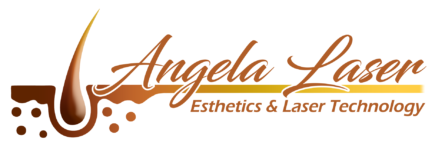In the ever-evolving world of education, where details moves perfectly and access to understanding is just a click away, student-driven encyclopedias are emerging as a dynamic device in the understanding procedure.

These platforms not only give students with a repository of information however also urge them to add, modify, and curate material, fostering a joint and interactive learning environment.
As academic paradigms shift in the direction of more participatory and inclusive versions, the idea of student-driven encyclopedias embodies this transformation. These systems empower trainees to become energetic individuals in knowledge development, linking the void in between standard textbook understanding and modern-day electronic resources.
The Concept of Student-Driven Encyclopedias
Student-driven encyclopedias are digital platforms where students jointly collect, validate, and share info on a large selection of subjects. Unlike traditional encyclopedias, which are frequently written by specialists, these platforms leverage the collective initiatives of pupils to create a thorough body of understanding.

At their core, student-driven encyclopedias are made to cultivate crucial reasoning, study skills, and digital proficiency amongst pupils. By participating in the process of content creation, pupils discover to navigate and assess information critically, skills that are necessary in today’s information-rich culture.
Moreover, these systems function as an area for students to explore their passions and share their experience. This democratic strategy to understanding production guarantees that a varied range of viewpoints and voices are represented, improving the finding out experience for all individuals.
- Trainees get hands-on experience in study and web content creation.
- Urges collaboration and peer interaction.
- Advertises a much deeper understanding of subject matter.
- Fosters inclusivity and variety in knowledge depiction.
Basically, student-driven encyclopedias transform trainees from easy receivers of information right into energetic contributors, instilling a sense of possession and responsibility in their academic trip.
Benefits of Student-Driven Encyclopedias
Among the major advantages of student-driven encyclopedias is the development of essential 21st-century skills. As pupils take part in the process of material development, they hone their crucial thinking, electronic proficiency, and communication abilities, every one of which are crucial in today’s interconnected world.
Additionally, these systems urge True or false: ur hearts a muscle a collective discovering atmosphere, where students can collaborate to confirm details, argument different viewpoints, and co-edit articles. This peer-to-peer communication not just improves finding out outcomes yet also fosters a sense of community and mutual regard amongst pupils.
Additionally, student-driven encyclopedias use a platform for showcasing trainee job. As students add to the encyclopedia, they build a profile of their research study and writing, which can be indispensable for more scholastic and expert searches.
Difficulties and Limitations
Regardless of the countless benefits, student-driven encyclopedias additionally face specific obstacles. Making sure the accuracy and integrity of details is vital, as these systems count on payments from trainees that might not yet have expert-level understanding.
- Keeping material quality and precision.
- Giving ample guidance and assistance.
- Guaranteeing equitable accessibility and inclusivity.
To reduce these difficulties, several student-driven encyclopedias implement a system of checks and equilibriums, where web content is reviewed by teachers or specialists before magazine. This guarantees that the information offered is both precise and reliable, promoting the honesty of the platform.
The Future of Student-Driven Encyclopedias
As technology continues to advance and the landscape of education progresses, the capacity for student-driven encyclopedias is huge. These platforms have the capacity to not only enhance standard educational resources but likewise redefine the way expertise is acquired and shared.
In the future, we could see student-driven encyclopedias incorporating more advanced innovations such as expert system and machine learning to boost content curation and customization. In addition, they may expand past textual info to include multimedia content, providing a more immersive knowing experience.
Empowering the Future Generation
Student-driven encyclopedias hold the promise of equipping the next generation of learners. By placing pupils at the helm of expertise creation, student q&a hub these platforms encourage lifelong understanding, interest, and intellectual freedom.
Finally, as academic systems continue to innovate, student-driven encyclopedias stand as a testimony to the power of partnership and the significance of pupil company in the discovering process. By welcoming these platforms, we open the doors to a more comprehensive, engaging, and vibrant academic experience for all.

